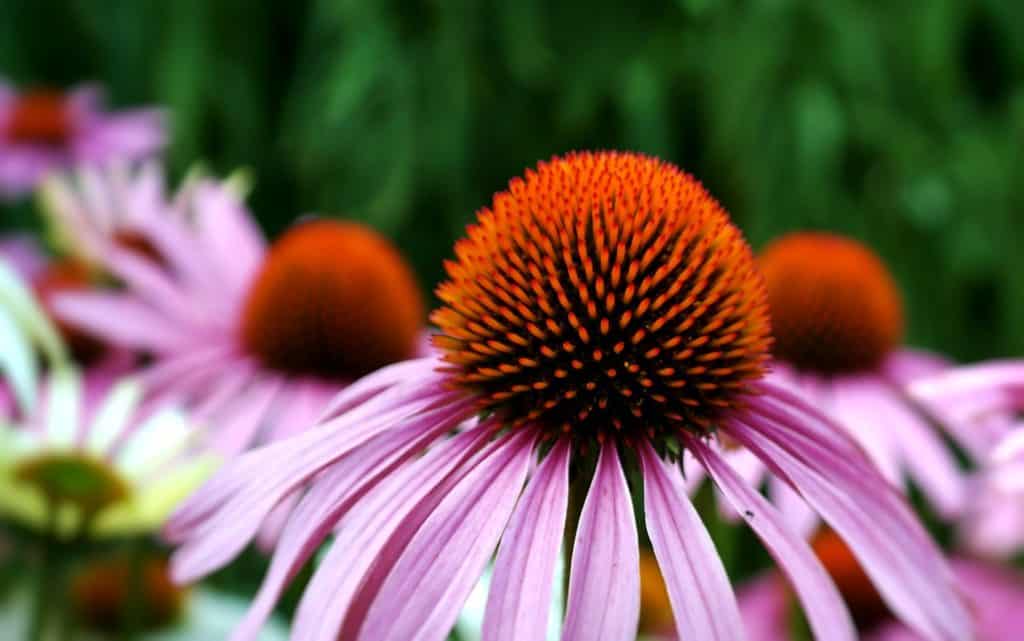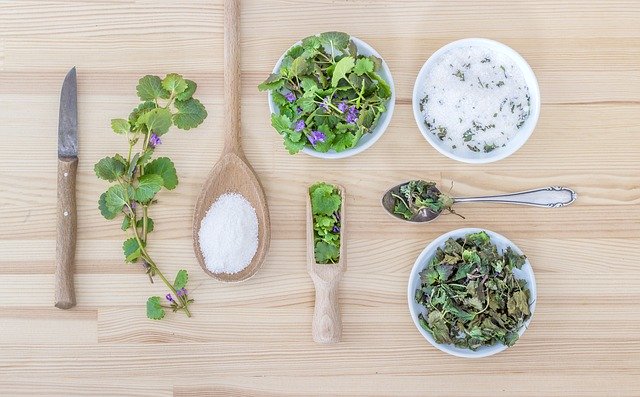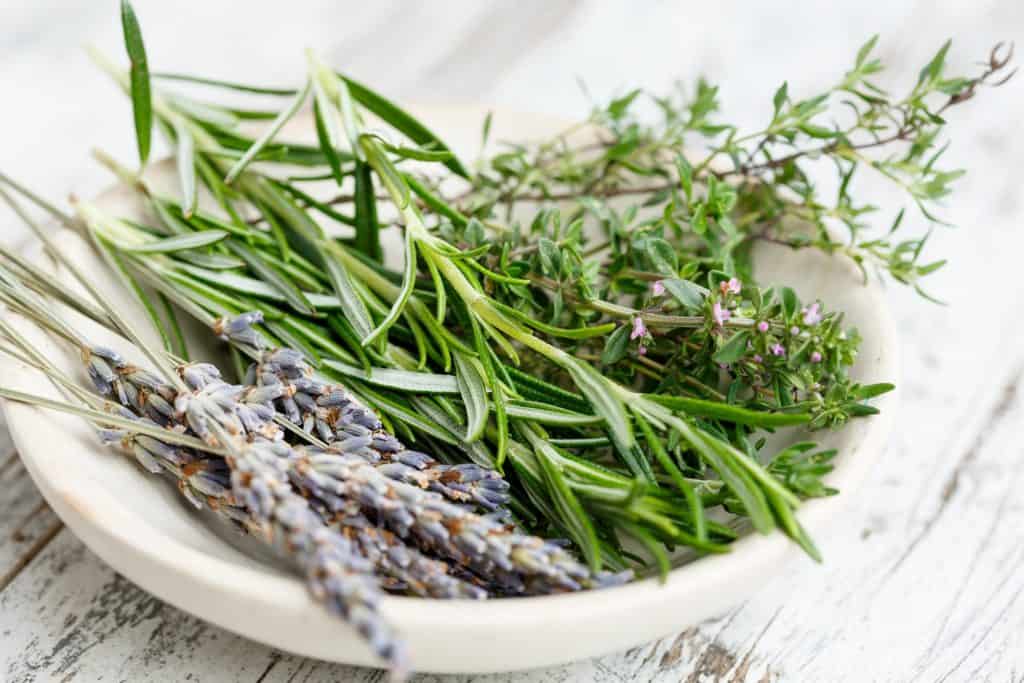Echinacea is another one of those herbs that many home herbalists, including me, adore. This plant medicine series is all about inspiring you to grow your knowledge of common herbs along with your gardens.
In this series, you’ll be introduced to 8 common medicinal herbs and how you might want to use them in your home apothecary. Of course, there’s much more to know about each plant, but hopefully this will be enough to inspire your curiosity. Research any or all of them further to see if they’re right for your garden.
Grow it for beauty or benefits
Echinacea is a beautiful and beneficial plant to add to your garden.
Echinacea blooms in summer. These beautiful purple, cone-shaped flowers are how it gets the name purple coneflower. This hardy perennial is a popular plant in a home herb garden. Not to mention that it’s equally at home in a perennial flower garden. Bees, butterflies and birds all love this plant too. So by planting it, you’re also supporting the pollinators who desperately need your help.
If you’re using the roots, they should be dug up and prepared in the fall.
To ensure that you have plants every year, you’ll likely need to add new plants to your garden each year. This plant readily reseeds itself, so you may not need to be concerned about that. Still, it’s something to be aware of. Most home herbalists agree that the roots should be dug up for use after three years. So plan ahead for replenishing your supply of plants in your garden.
Why We Love It
Echinacea is known for its ability to help us fight off infections, and it’s the first thing that many home herbalists will reach for when they feel cold or flu symptoms coming on. It’s an immune system booster, especially when dealing with respiratory issues. It’s also anti-inflammatory, making it a great choice for cuts and wounds too.
If you don’t grow it or don’t harvest it, you can keep capsules of echinacea in your home apothecary for when you first start feeling a cold come on. We all know the familiar tickle in your throat from cold symptoms.
One bit of advice when taking echinacea capsules, though, the contents are full of crushed particles, and if you try to take these without water, the pills can become “stuck” in your throat. Not very pleasant. It’s advised to take these with plenty of water and during a meal to prevent any stomach issues. If you purchase these, be sure to read the directions for using them. Most qualified herbalists can help you determine the correct dose to use, too.
Echinacea Benefits
Echinacea is a great infection fighter and is used as an antibiotic. It helps clear the blood of toxins.
It’s also known to help with many other issues, like these:
- Acne
- Antibiotic
- Antiseptic
- Blood purifier
- Boils
- Cancer
- Digestion
- Ear infections
- Digestion
- Eczema
- Glands
- Gums
- Infections
- Insect bites and stings
- Lymph glands
- Sores
- Skin
- Wounds
Summary
If you like plants that are beautiful and useful in your gardens, then echinacea is one to consider. For me, this is a plant that I have made sure is part of my garden, along with lavender. As a bonus, the pollinators love them too. This post is only the overview of what this beautiful plant can do for you, so be sure to do a bit of research to see if adding it to your garden is something you’ll want to do.
Be sure to catch the other posts in this series. They’re listed below for you.
Blessed be.
Other Posts in this Series
What is Plant Medicine? The Basics.
Learning Plant Medicine for Beginners
Start your Own Home Apothecary: Tools & Methods
8 Plant Medicines Found in your Kitchen
Plant Medicine to make in the Fall
Disclaimer: I’m not a medical doctor or an herbalist. This article isn’t intended to be medical advice. Not all plants are safe to use. Some are toxic and can be deadly. Other herbs may cause an allergic reaction in some people. Always consult your doctor, healthcare provider or a qualified herbalist before using any type of plant medicine.



